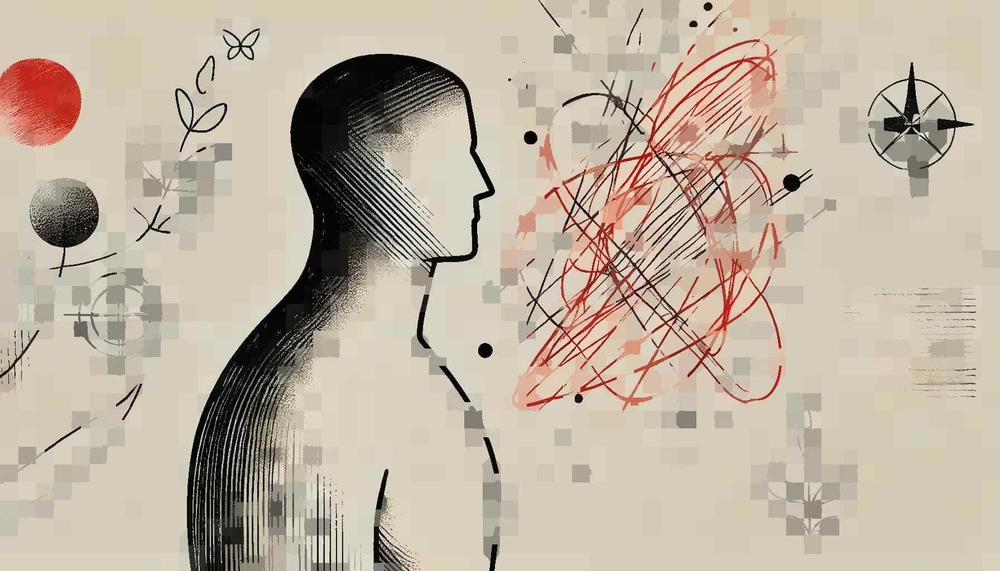Published
- 4 min read
You Are Your Limits

Re-frame Pain to Reduce Suffering
”You can do everything you want” is a seductive lie sold by many self-help gurus. The truth is, you—like all of us—are limited. Your limits, in fact, are the closest thing to a stable identity. Time, energy, capacities, genuine interests—these boundaries intersect to form who you are.
I’ve found it uncomfortable to confront these limits because they can clash with my self-image:
- How good can I be at school?
- What are my pain thresholds?
- How far can I run before exhaustion?
- How much information can I absorb and integrate?
These limits are shaped by biological factors like age, health, and capacity, as well as psychological factors like conditioning and temperament. If there’s a stable essence to the self, it is these boundaries.
The Fantasy of Limitlessness
Some people I know fantasize about plans outside these constraints, always frustrated when reality falls short. They imagine themselves as limitless and blame others or circumstances for their failures—traps that could be avoided with introspection into their true limits.
The abundance of self-help material doesn’t help. Much of it is based on the premise that information alone can dramatically alter behavior. But does advice really work? Does it actually change us?
Exploring My Own Limits
I am a limited reader.
I’ve discovered that I have a finite capacity for absorbing new information. English is my second language, and I didn’t start reading books seriously until my late teens, so I expected some deficits.
After some experimentation, I’ve found my limit: about 30 pages of non-fiction per day. Beyond that, my mind wanders, and I start tracking letters without really learning.
Acknowledging this limit has helped. For example, I’ve been reading Deep Work by Cal Newport at a pace of about a chapter per week. It’s a well-written book, filled with anecdotes and historical insights about focus. Had I tried to optimize for speed, I might’ve missed these valuable details. By pacing myself, I’ve been able to digest and enjoy the central points more deeply.
How Do Others Cope With Their Limits?
I suspect most people have an intuitive sense of their limits and work around them. However, there are distortions—some people underestimate their abilities (imposter syndrome), while others overestimate them (grandiosity).
Studies suggest that people with higher capacities tend to underestimate their abilities, while those with lower capacities overestimate them. One way to counteract personal bias is to use standardized measures like physical metrics, fitness scores, or test results. These provide some level of consistency but aren’t perfect for predicting individual abilities.
I believe the best measure is concrete, specific experience.
Discovered Limits
Here are a few limits I’ve uncovered in my own life:
Socialization Bandwidth
I’ve learned that my extreme introversion (10th percentile extroversion) sets strict limits on how much social engagement I can handle. Extended periods of forced socialization affect my immune system, disrupt my sleep, and lead to depression. I can manage about 2-3 deep phone conversations per week before I need to recharge.
Interestingly, conversations with close friends are less draining than those with acquaintances or strangers, likely because they are more emotionally predictable.
Understanding this limit has led to healthier decisions, such as working remotely.
Attention to Detail—ADHD
I struggle with routine cognitive tasks and am easily bored by them. This includes things like basic arithmetic, financial forecasting, paying bills, and repetitive tasks that don’t require creative problem-solving.
For instance, in Calculus, I made simple arithmetic mistakes but excelled in conceptual problems and proofs. Similarly, in an advanced logic course, rule-based manipulation of symbols was mentally exhausting, and I frequently made errors.
Thankfully, tools like calculators, spreadsheets, and automated reminders help mitigate this limitation, though I still need to remember to use them—a task that itself requires special attention.
Implications for My Ventures
These limitations will likely pose challenges in areas like business networking, sales, accounting, and self-promotion—skills necessary for entrepreneurship. I can either work to improve in these areas or find people with complementary skills to compensate.
There’s a sense of peace in acknowledging and accepting these limits. While the underlying causes may shift over time, these boundaries are stable enough to define my current self.